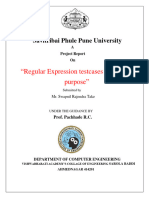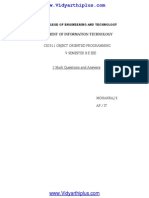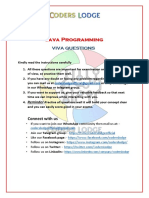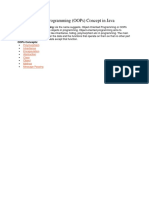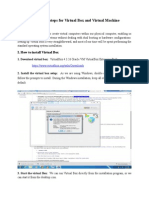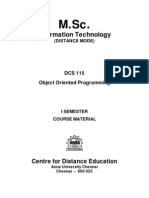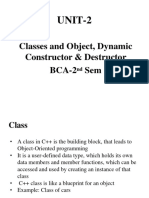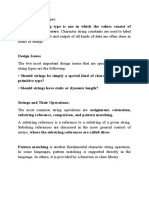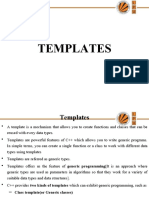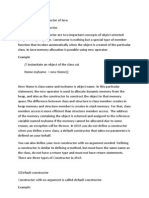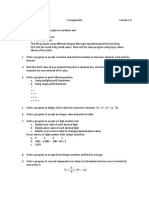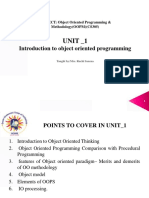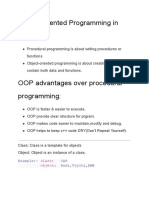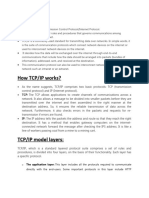0% found this document useful (1 vote)
1K views2 pagesIMPORTANT QUESTIONS 4th Sem OOP Usingc++
This document contains questions about object-oriented programming concepts in C++ organized into 4 units. The questions cover OOP concepts like classes, inheritance, polymorphism, templates and exceptions. Specific C++ features discussed include constructors, destructors, references, memory management, virtual functions, ambiguity in multiple inheritance, and the standard template library. The document aims to assess understanding of fundamental OOP concepts and how they are implemented in C++.
Uploaded by
Poojisha LakshyaCopyright
© © All Rights Reserved
We take content rights seriously. If you suspect this is your content, claim it here.
Available Formats
Download as DOCX, PDF, TXT or read online on Scribd
0% found this document useful (1 vote)
1K views2 pagesIMPORTANT QUESTIONS 4th Sem OOP Usingc++
This document contains questions about object-oriented programming concepts in C++ organized into 4 units. The questions cover OOP concepts like classes, inheritance, polymorphism, templates and exceptions. Specific C++ features discussed include constructors, destructors, references, memory management, virtual functions, ambiguity in multiple inheritance, and the standard template library. The document aims to assess understanding of fundamental OOP concepts and how they are implemented in C++.
Uploaded by
Poojisha LakshyaCopyright
© © All Rights Reserved
We take content rights seriously. If you suspect this is your content, claim it here.
Available Formats
Download as DOCX, PDF, TXT or read online on Scribd
/ 2





